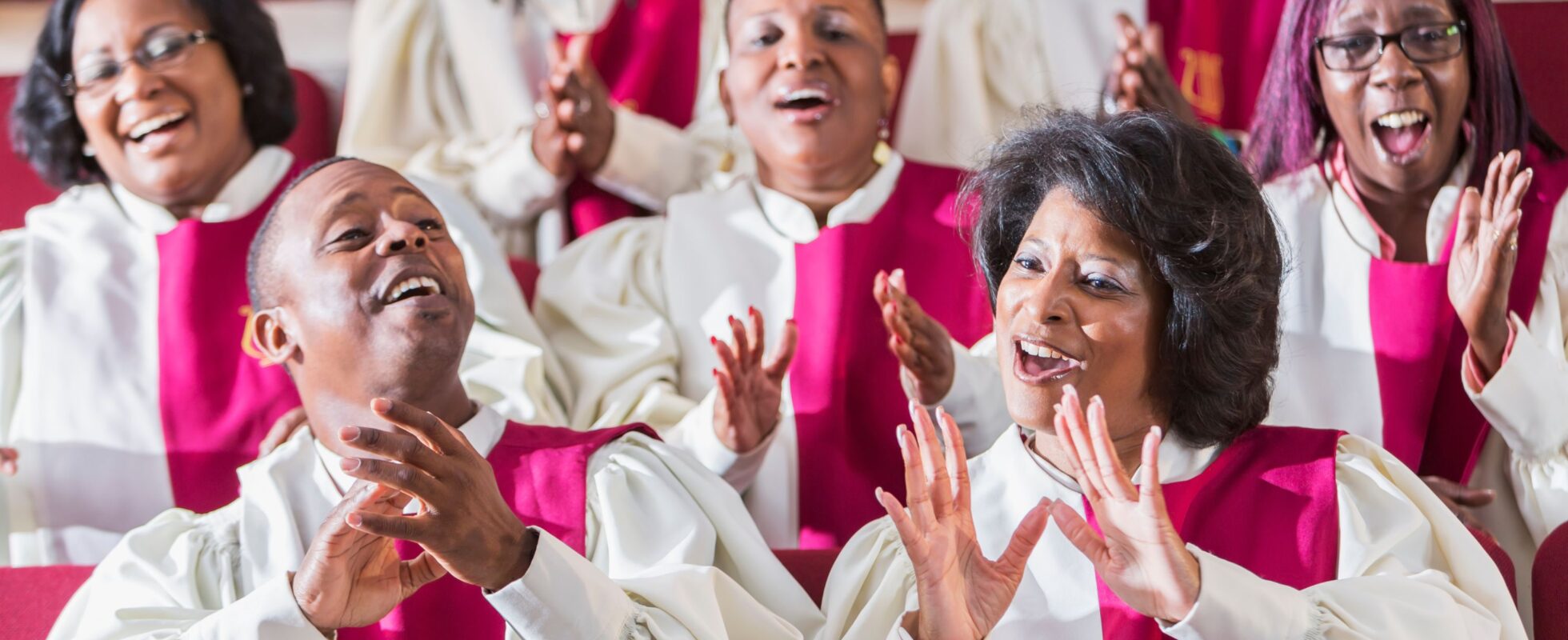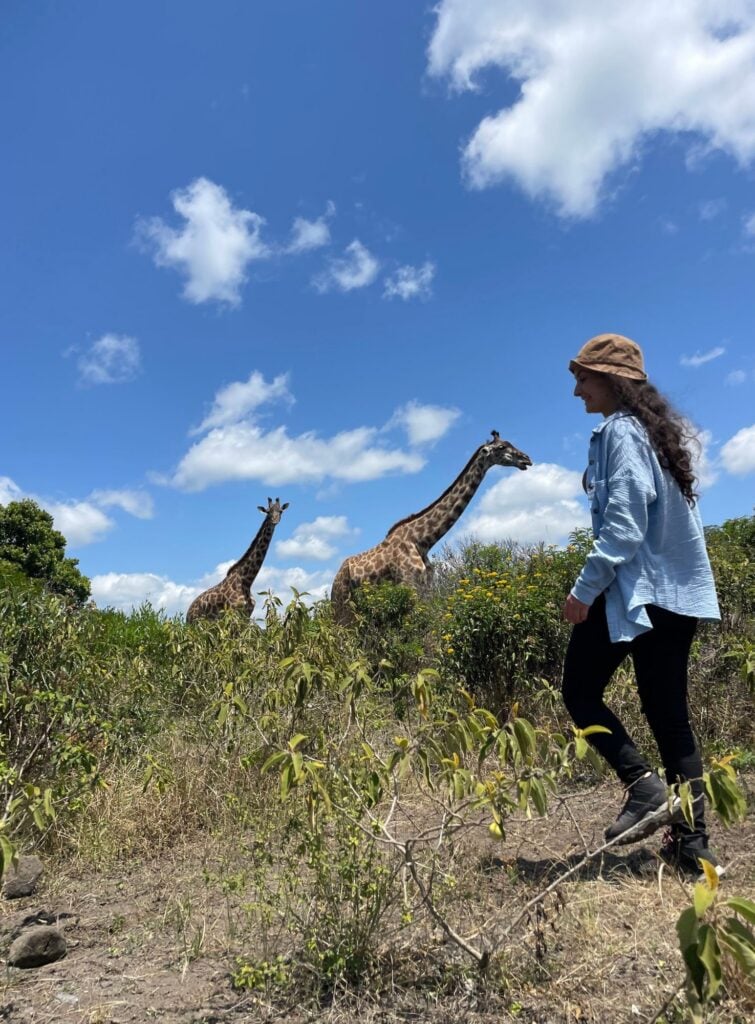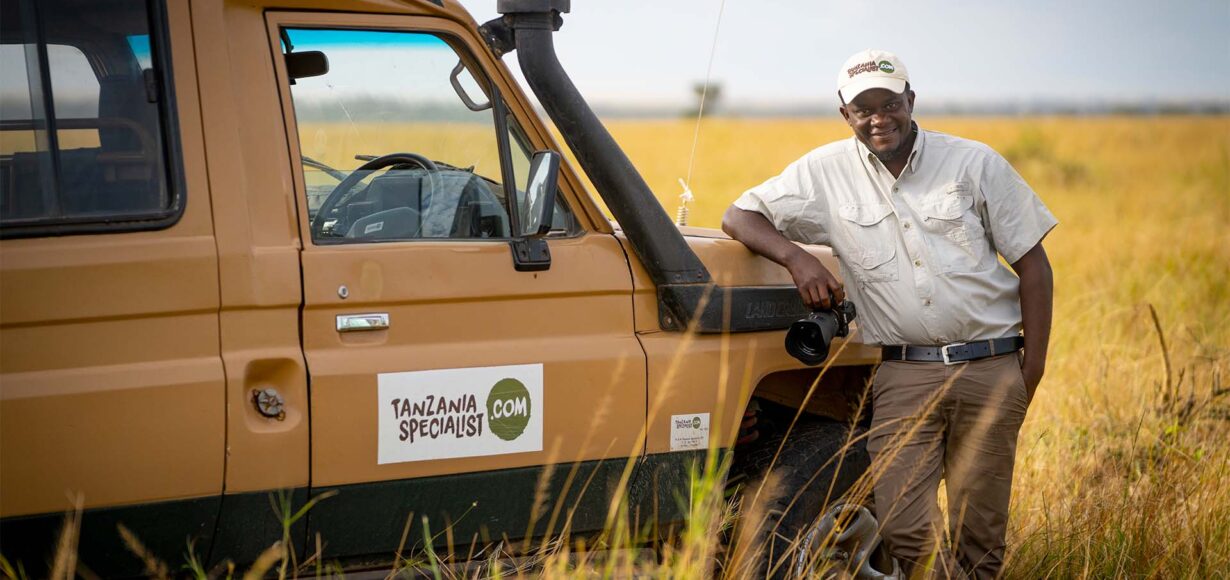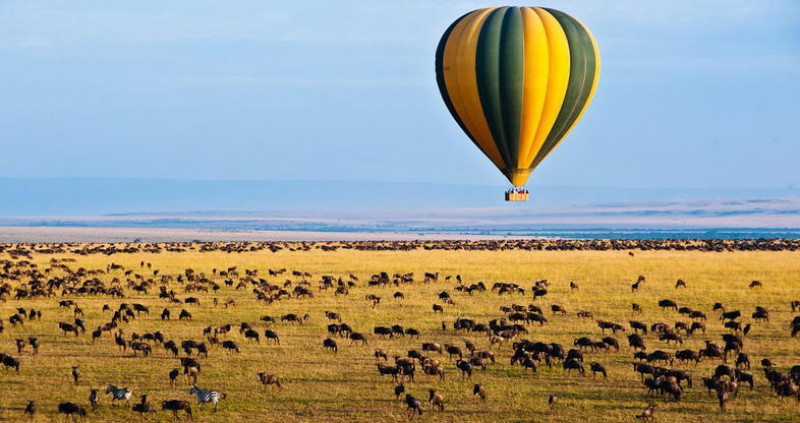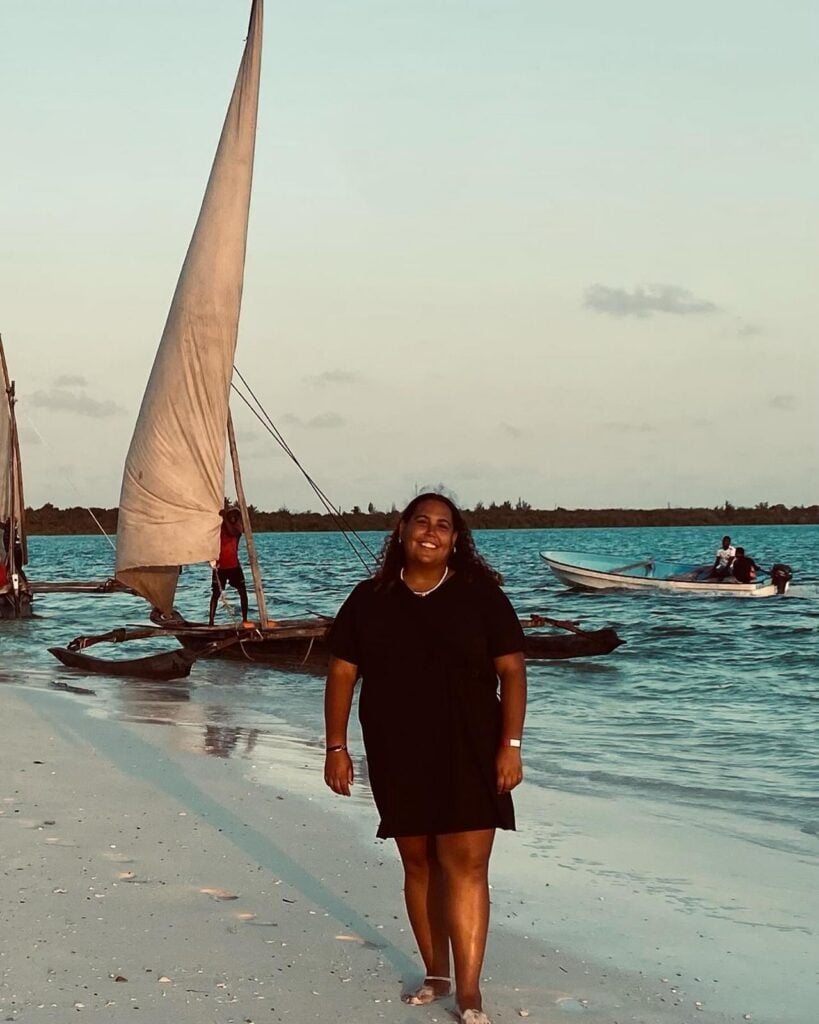
11 July 2024
From the city’s vibrant streets to tranquil villages – the influence of religion in Tanzania is unmistakable. It’s an integral part of the daily lives of Tanzanians, infusing both grand celebrations and quiet, everyday moments with a sense of tradition and community unique to this nation. So if you’re curious about the diversity of religious beliefs in Tanzania, simply keep on reading.
The Role of Religion in Tanzanian Culture
In Tanzania, religion is evident in every aspect of life. It’s the jubilant songs echoing from worship houses, the lively celebrations of religious festivals, and even the casual “Mungu akubariki” (God bless you) during everyday interactions.
Religion here is as vibrant as the breathtaking sunsets over the Serengeti and as comforting as the gentle Indian Ocean breeze. This intertwining of faith and life, however, isn’t just charming: it forms the backbone of Tanzanian society. It’s a place where religious festivals are community highlights and sacred rituals mark life’s milestones.
But it’s not all festivals and feasts. Religion in Tanzania also plays a key role in moulding values and ethics. Respect for elders and care for the community are virtues championed by all major religions, creating a harmonious and welcoming society.
On top of that, many Tanzanians turn to religious leaders for guidance on not just spiritual matters but also issues like health, family, and education. Religious organisations provide social services, education, and healthcare… especially in rural areas.
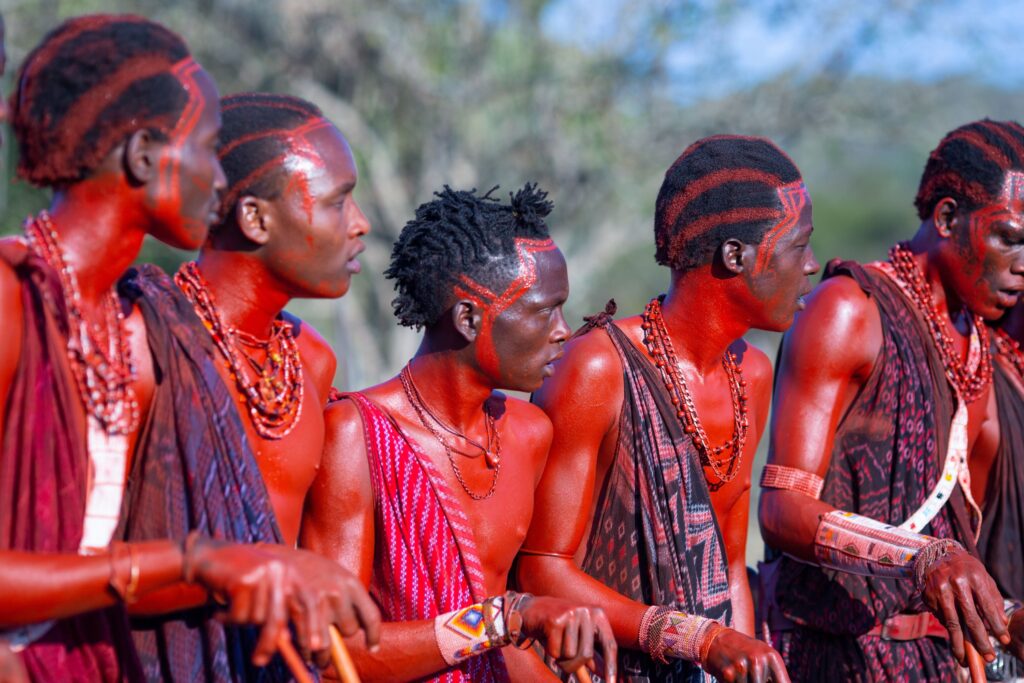
Religious Demographics
Tanzania boasts a diverse range of religious beliefs. A significant majority of its citizens identify either as Christians or Muslims. The following percentages of Tanzanian religions paint a clearer picture:
- Christian: 63.1%
- Muslim: 34.1%
- Traditional African religions: 1.1%
- Other: 1%
Main Religions in Tanzania
Christianity
Christianity is the most widely practised religion in Tanzania and has roots that stretch back to European missionaries. Over the centuries, it has become deeply ingrained in Tanzanian society and culture, influencing various aspects of daily life. The Tanzanian landscape is dotted with churches that range from majestic cathedrals to modest village chapels. These are not just places of worship; some of them are landmarks of cultural and historical significance.
Christianity’s influence extends far beyond its places of worship. It has played a pivotal role in shaping the education system in Tanzania, with many schools and colleges established by Christian missions. The religion has also made significant contributions to healthcare, with the establishment of hospitals and health centres across the country. In the political sphere, Christian values and ethics have influenced legislation and governance, although the state maintains a secular stance.
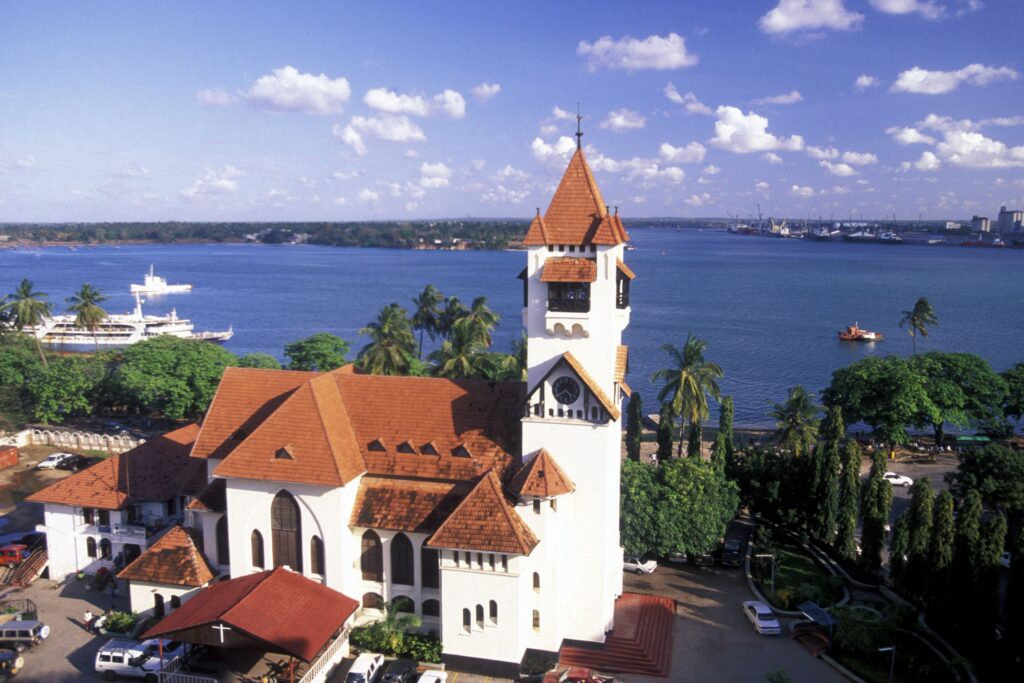
However, the true essence of Christianity in Tanzania is perhaps best captured in its vibrant community life. Joyous gospel choirs, lively Sunday services, and the tradition of dressing in Sunday best reflect a spirit of celebration and togetherness. Religious events like Christmas and Easter are not only times of worship, but also of everyone coming together and celebrate – even non-Christians.
Furthermore, Christianity in Tanzania is characterised by its diversity, with a wide range of denominations coexisting, including Roman Catholic, Lutheran, Anglican, and Pentecostal congregations. This diversity truly shows the dynamic nature of Christianity in the country, adapting and evolving in response to the changing needs and cultures of its people.
Islam
With 34% of the population identifying as Muslim, Islam is Tanzania’s second-largest religion. The vast majority of Muslims in Tanzania are Sunni, though there is also a Shia minority.
This rich, century-spanning Islamic heritage continues to flourish. Especially along the coast and the Zanzibar archipelago, which consists of several islands, including the main island Unguja – a significant centre of Islamic culture.
Here, Islamic traditions have deeply influenced the arts, cuisine, architecture, language, and everyday customs. The archipelago’s largest city, also known as Zanzibar City, is home to mosques and historical sites that are pivotal to its cultural landscape. The historical and modern mosques invite believers to worship and to come together.
In cities like Dar es Salaam and Zanzibar City, the harmonious mix of Islamic practices with urban life comes extremely evident. The call to prayer stands out, a serene and reverent moment amidst the hustle and bustle. Ramadan is celebrated with communal activities and vibrant decorations – with the highlight being Eid al-Fitr, the end of Ramadan.
In smaller towns and rural villages, Islam’s influence is subtly woven into social norms, educational systems, and local governance. This reflects a practice of Islam that is uniquely Tanzanian, harmoniously blending traditional Islamic teachings with local customs and contemporary practices.
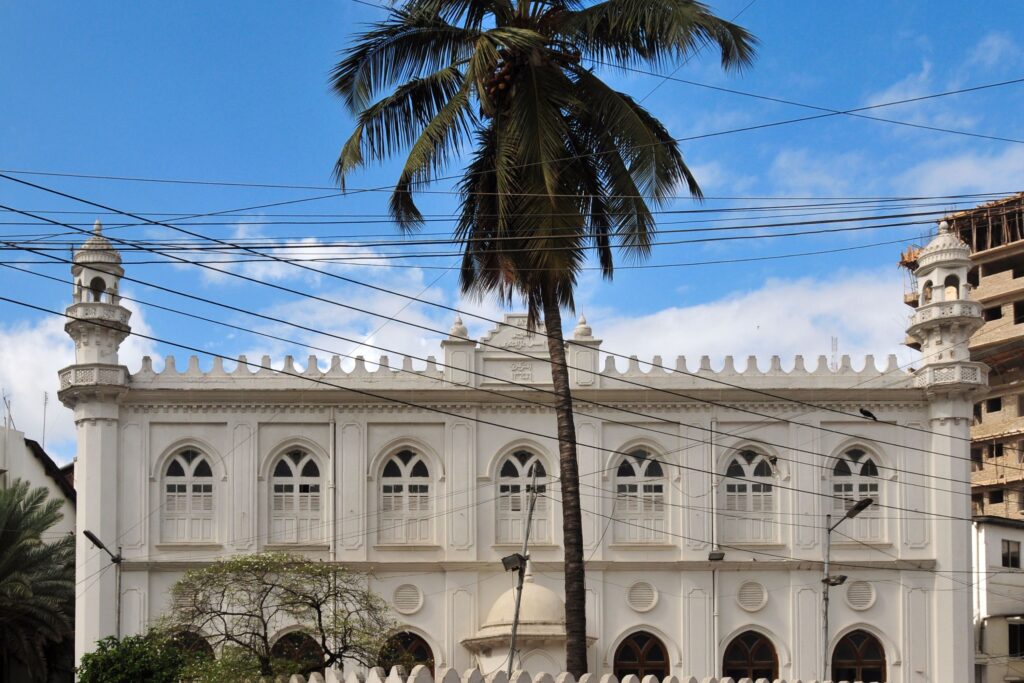
Indigenous Beliefs
Though overshadowed by the country’s main religions, indigenous beliefs still thrive, offering a glimpse into a Tanzania that predates colonial borders. They underscore the fact that religion in Tanzania isn’t solely a product of external influences, but also sprouts from the deeply rooted traditions and lore of the land.
These indigenous belief systems are as diverse as Tanzania’s ethnic mosaic. For example, among the Chagga people of Mount Kilimanjaro, traditional beliefs focus on reverence for the mountain and nature. Similarly, the Hadzabe, one of the last hunter-gatherer tribes in Africa, have a spiritual connection to the environment that shapes their rituals and way of life.
Such beliefs often centre around ancestral spirits, the power of natural forces, and the importance of community and family ties. They influence local customs, social structures, and even ethical values. Ceremonies and rituals connected to these beliefs are not only religious practices, but also serve as communal activities that strengthen bonds and preserve cultural identity.
Minor Religions in Tanzania
Hinduism and the Bahá’í Faith are considerably less prevalent than Christianity and Islam, but are also practiced in Tanzania. Traces of these minor religions are discernible within Tanzanian society, adding another dimension to the nation’s religious diversity.
Hinduism
The Hindu community primarily comprises members of the Indian diaspora and descendants of traders who migrated from India’s Gujarat region during the British colonial era. Despite their relatively small number, Hindus have played a substantial role in promoting cultural integration through intermarriage and the subsequent blend of customs.
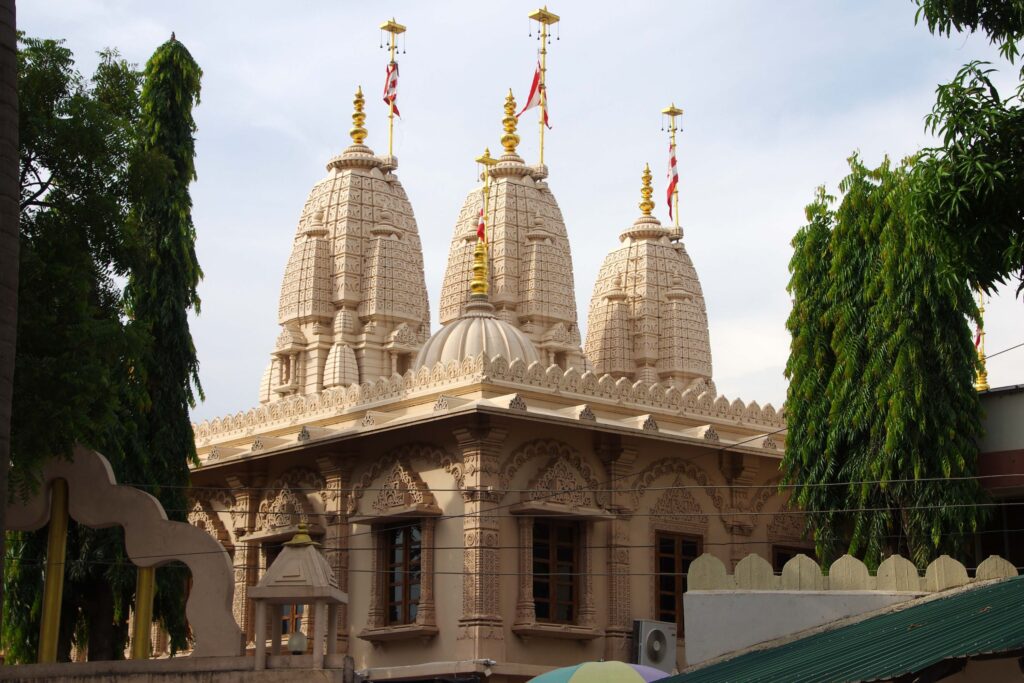
Bahá’í Faith
Bahá’í Faith has followers across all of Tanzania’s districts and sustains itself as a peace-building model advocating unity and tolerance. Its Universal House of Justice manages community development projects, further enriching Tanzanian society.
Religious Freedom in Tanzania
Tanzania’s commitment to religious freedom is a cornerstone of its national identity. In this nation, where diversity is celebrated, every individual enjoys the liberty to practice their faith openly and without fear. The Tanzanian Constitution safeguards this freedom, ensuring that every citizen – regardless of their religious affiliation – can worship, observe, practice, and teach their faith. This legal protection fosters an atmosphere of mutual respect and understanding among the diverse religious communities.
The government’s role in maintaining religious neutrality is pivotal. It ensures that no single religion is favoured over another, creating an environment for all faiths to flourish. This approach has been instrumental in preventing religious conflicts and promoting tolerance. Furthermore, the freedom to change one’s religion or belief is respected, reflecting the country’s progressive stance on individual rights and personal choice.
Religious Sites to Visit in Tanzania
Tanzania has many beautiful and historic religious sites that are fascinating to visit. Let’s find out more about the top religious destinations.
Mosques and Temples
Being a predominantly Mulsim city, it’s no surprise that you can find several mosques in Dar es Salaam – from minimalist to elaborate. One of them even dates back to the 12th century making it one of the oldest Islamic buildings in the whole country. Others fascinate less with their age, but more with their unique architecture combining multiple styles including Swahili, Arab, Persian, and Indian influences.
However, you can also find Hindu temples in Dar es Salaam, some being older than 100 years. With their unique featurs and colors, they clearly stand out and are definitely worth a visit.
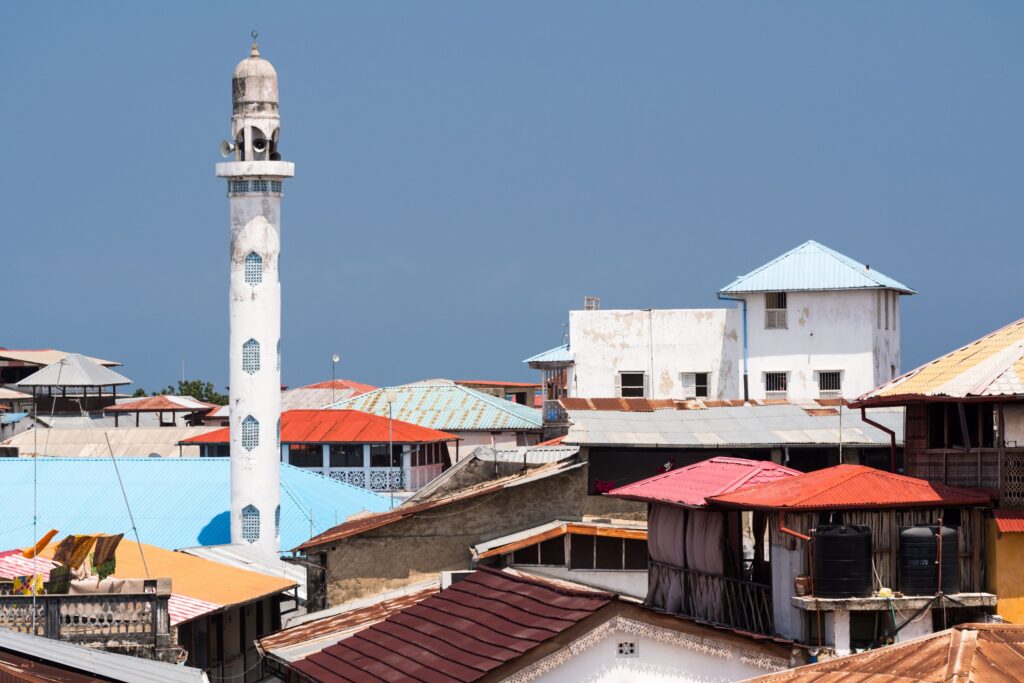
Churches
- The Karatu Lutheran Church in the Ngorongoro Conservation Area dates back to the early 20th century and gives visitors a look at traditional Maasai Christian worship.
- The Azania Front Lutheran Cathedral in Dar es Salaam has towering arches and stained glass windows and is located near the city centre. It was built in 1898 and holds services in Swahili (and yes, you can experience that for yourself).
- The Saint Joseph Cathedral is a grand Roman Catholic cathedral in Dar es Salaam, built in 1897. Its massive dome and twin spires make it a local landmark.
Indigenous Sites
- The Kondoa Rock-Art Sites depict ancient animist spiritual scenes and date back approximately 2,000 years. This UNESCO World Heritage Site is a must-see.
- The Tongoni Ruins in the Tanga region are the remains of a traditional Shirazi Muslim town from the 15th-16th century, containing a mosque, tombs, and other buildings.
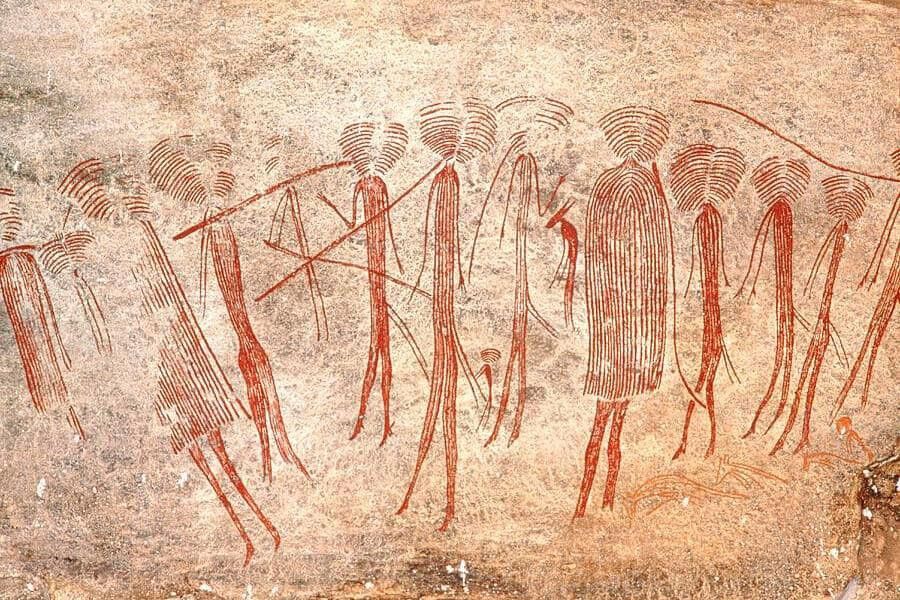
Religion in Tanzania doesn’t merely exist – it thrives and shapes the country’s identity in many beautiful and complex ways. Regardless of its numerical status, each faith contributes to the societal melting pot, highlighting tolerance, unity, and mutual respect.
So, as you plan your Tanzanian adventure with us, remember: you’re not just visiting a place, but immersing yourself in a world where faith, culture, and community come together to create an experience of unparalleled harmony.
